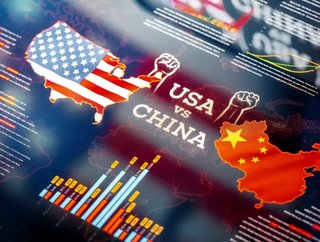China Criticises US Senate’s $250bn Tech and AI Bill

On Tuesday, the U.S. Senate approved the Innovation and Competition Act, a bipartisan initiative that aims to supercharge American tech and manufacturing. Championed by both parties—a move unusual in itself—the bill will provide US$190bn for U.S. technology research, US$54bn for semiconductors and telecommunications, and US$29bn over five years for a new technology division at the National Science Foundation (NSF). Among other tech specialisations, lawmakers intend to accelerate research in AI, machine learning, and quantum science.
According to California Representative Ro Khanna, the Senate’s bill is the biggest investment in technology since the nation’s Apollo spaceflight programme. Biden looks forward to signing it into law, and even Republicans worried about final costs are willing to get on board.
But this is also the latest development in the United States’ hardline stance against China. In addition to slapping broad sanctions on Chinese firms involved in cyberattacks and intellectual property theft, the bill will block drone purchases from Chinese-government-backed companies, throw support behind Taiwanese diplomats, and ban Americans from investing in Huawei Technologies and other companies allegedly involved in Chinese defence and surveillance.
Cold-War Thinking?
Although the bill must pass through the U.S. House of Representatives to be signed into law, China has already sent a firm response. “We firmly object to the United States seeing China as an imaginary enemy”, said Wang Wenbin, a Chinese foreign ministry representative. In a further comment, she called the anti-Chinese measures “full of zero-sum thinking [that] distorts the facts”.
In a Wednesday statement, the foreign affairs committee of China’s National People’s Congress concurred, stating that the bill “seeks to exaggerate and spread the so-called China threat to maintain global American hegemony, using human rights and religion as excuses to interfere in China’s domestic politics, and deprive China of its legitimate human rights”.
Indeed, the China-U.S. relationship has deteriorated over the past eight or nine years. This is partly due to trade wars and partly due to political rhetoric. Ever since the U.S. elected President Trump in 2017, Americans have united behind a common distrust of China. Now, advanced surveillance technologies and artificial intelligence are at the top of the Senate’s priority list.
The Starting Gun Goes Off
Some of China’s criticisms are true: namely, the bit about global American hegemony. Said Biden: “We are in a competition to win the 21st century, and the starting gun has gone off...We cannot risk falling behind”. The Senate Majority Leader Chuck Schumer added similar sentiments. “We don’t mean to let [our days as the dominant superpower] end on our watch”, he said. “America [will not] become a middling nation”.
Yet Americans who back the bill point out that China has enacted similar policies over the years, injecting funds into high-tech developments in order to remain competitive with the U.S., Japan, and India. One such example is the country’s “Made in China 2025”, a national strategic plan to help high-tech Chinese manufacturers dominate the market.
To conclude: the U.S. Innovation and Competition Act may seem unexpectedly aggressive. But in reality, the Senate’s bill—and China’s reaction—is just one more step in a decades-long competition to come out on top.






